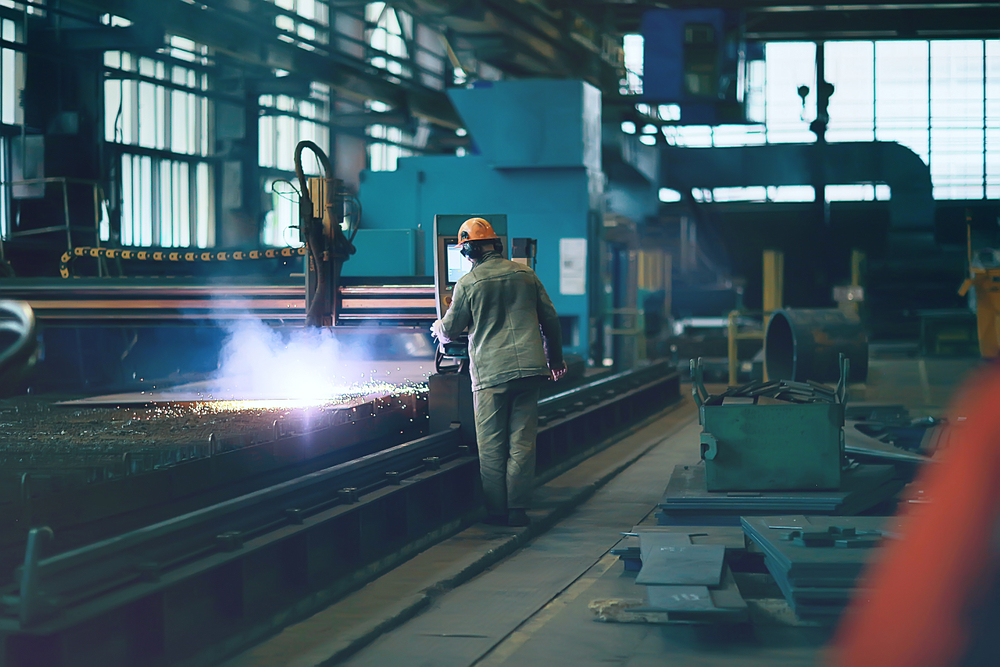What is the Difference Between a Metallurgist and a Metal Fabricator?
Metal – an incredibly versatile material that permeates most aspects of our lives in one way or another. Two roles often stand out in the wider industry – the metallurgist and the metal fabricator.
At first glance, these professions might seem similar, but they’re quite distinct in terms of their skills, daily tasks, and applications. In this guide, our experts at KNS Metals aim to highlight the key differences between these two crucial positions in the metal industry, including metal work tools, the stainless-steel fabrication process, and more.
What is a Metallurgist?
A metallurgist is a specialist in the properties of metallic elements, their behaviour, and processing techniques. Their expertise is grounded in understanding the intrinsic qualities of metals, from atomic structures to macroscopic properties, and then applying their knowledge to a host of requests, including metal production.
A metallurgist will work with various metals, including steel, iron, cobalt, lithium, zinc, aluminium alloys, copper, and even precious metals.
What Tasks & Services Does a Metallurgist Perform?
Metallurgists are pivotal figures in the world of metal extraction, processing, and advanced material production. Their realm of expertise extends over various sectors, each bringing forth specific challenges and responsibilities.
Here’s a deeper dive into their essential tasks and services:
- Mineral Processing: At the core of metallurgy is the art of separating valuable metal components from undesirable ones in ores or recycled feed streams. Mineral metallurgists employ physical methods to achieve such separation, setting the stage for the subsequent extraction stages.
- Hydrometallurgy: Once separated, the metals often require further purification. One method employed is hydrometallurgy, which uses aqueous solutions to extract the metals. It’s a process that is both complex and nuanced, requiring precision and expertise.
- Pyrometallurgy: Pyrometallurgy turns up the heat (literally). It uses high temperatures to extract metals in smelting or refining processes. The heat-driven processes are fundamental for numerous metals, ensuring their purity and usability.
- Advanced Material Production: Beyond conventional metal extraction and processing, metallurgists also play a role in the frontier of advanced materials. From crafting components for the next generation of batteries to developing sophisticated ceramics, their contribution reshapes the material world around us.
- Problem-solving & Quality Control: On encountering issues in the metal’s properties during manufacturing or performance, metallurgists step in to decipher the root cause and implement solutions. Alongside, they’re instrumental in ensuring that metals and materials produced meet rigorous industry standards.
What is a Metal Fabricator?
Moving on from the scientific side of metals, we encounter steel fabricators. These roles revolve more around the actual building and shaping of metal components once they have been produced, creating both aesthetic and practical solutions for a myriad of applications.
Put simply, metal fabricators, like our team at KNS Metals servicing Dandenong and wider Melbourne, are specialists in translating blueprints and designs into tangible, functional metal structures.
What Tasks & Services Does a Metal Fabricator Perform?
Metal fabricators have a hands-on role. Their primary responsibilities include:
- Cutting and shaping: Metal fabricators cut and shape metals into the required dimensions using various metal work tools.
- Welding: The welding and fabrication process involves various ways of joining metal pieces together using intense heat.
- Assembly: Once individual pieces are prepared, they’re assembled into the final product.
- Finishing: Includes grinding, sanding, or polishing the metal to achieve the desired finish, be it for aesthetic reasons or functional purposes like preventing corrosion.
Within the wider metal fabrication process, there are several specialist processes utilising the most sophisticated metal work tools to achieve the desired result, including:
- CAD/CAM Prototype & Design: Digital metal work tools for design and production planning.
- Laser Cutting: Uses high-powered lasers for precise metal cuts.
- Rotary Laser Cutting: Laser cutting for cylindrical objects.
- Turret Punching: Machine-driven method for punching holes in metal sheets.
- CNC Folding: Computer-controlled bending of metal sheets.
- Powder Coating: Electrostatic paint application for a durable finish.
- Component Assembly: Joining metal parts to create a product.
- Metal Perforations: Creating holes or openings in metal sheets.
Discover Professional Stainless Steel Fabrication Services for Those in Dandenong & Wider Melbourne
For businesses and individuals in Dandenong and throughout Melbourne, there’s no need to look further for top-tier stainless steel fabrication services near you. Reach out to our expert fabricators today and witness your visions transform into tangible, high-quality metal masterpieces thanks to our proficiency with the latest metal work tools.


